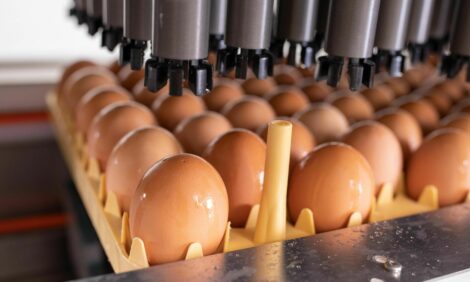



Politics session divides predictions for farming futures post-Brexit
Secretary of state for Defra, the Right Honourable Michael Gove, makes promises for a greener, technology-inspired, welfare-friendly future for British farming, with the assurance that post-Brexit policy will allow farmers to achieve this.Speaking at both the Oxford Farming Conference (OFC) and the Oxford Real Farming Conference (ORFC) this year, Michael Gove, Secretary of State for Environment, Food and Rural Affairs, laid out his plans for a brighter future for British farming. Many leaders in the agricultural industry have welcomed his plans, keen to encourage positive changes that will allow British farming to excel in sustainability and reach the highest welfare standards. Others have met his optimistic outlook with scepticism, and are waiting to see real changes before they believe the promises being made.
In keeping with the 2018 OFC theme of “embracing change”, Gove acknowledged that accepting such drastic changes to the policy we know and understand might be a daunting prospect but reassured his audience that trusting in policy and working hard to adapt to these changes would pay off:
There is a natural human desire to stick with what we know, to trust in our experience, and hope that things go on much as they have before… but we need to be able to shape change rather than resist it. The best way to thrive in a new environment, is to evolve.
He also highlighted the responsibility of the British government, environmental agencies and farmers in protecting and managing the British countryside and announced Defra’s commitment to providing more funding for environmental stewardship:
Without action, we face progressive loss of the natural capital, on which all growth – natural, human and economic – ultimately depends. We have to care for that which gives us all life.
Gove went on to discuss the “fundamentally flawed design” of the EU’s Common Agricultural Policy (CAP) which he believes detracts from the original purpose of the scheme – to protect the natural resources that drive our agricultural economy – and “entrenches low productivity”. He added:
Paying landowners for the amount of agricultural land they have is unjust, inefficient and it drives perverse outcomes. It gives the most from the public purse to those who have the most private wealth.
He moved on to stewardship schemes which he claimed should be simplified “to the point that any farmer can complete an application (from start to finish) in one day” and announced his commitment to changing how support is allocated to farmers on these schemes:
In order to decide how we allocate support, we also need to change our approach to inspection. We inspect too often, too ineffectively, and for the wrong things… which adds to the burden on farmers.
We need to reduce the number of inspections overall, ensure more inspections are genuinely risk based and focus efforts on areas where standards are not what they should be.
Gove followed with a four-point priorities list, highlighting the primary areas of focus for Defra in post-Brexit policy:
1. developing coherent policy on food;
2. providing farmers and land managers time to adapt features that require updating;
3. providing new, efficient methods of financial support for farmers;
4. instilling natural capital thinking in approach to all production management.
NFU vice president Guy Smith responded to Gove’s statements in an NFU release:
We provide the raw materials for a domestic food industry that employs 3.8 million people and which, as the UK’s largest manufacturing sector, generates £112 billion in value for the UK economy. This is why we welcomed the secretary of state’s commitment to create a national food policy and his recognition that food is at the heart of viable farming businesses.
Responding to statements by the newly formed Nature Friendly Farming Network that Brexit could offer a “once in a generation” opportunity to restore British wildlife, Green Party MEP Molly Scott Cato commented:
Farmers committed to working with nature were pleased to hear about Michael Gove’s plans to shift subsidies away from landholding to environmental benefits, but given his past record on environmental matters there is also understandable scepticism.
To reassure the doubters, Michael Gove could act now and use the flexibility within the CAP system to make some changes immediately - I would suggest that he introduces a maximum level of land-based payments and increases the proportion of payments that are given in return for wildlife-friendly farming.
British Veterinary Association president John Fishwick also commented on some of the prominent omissions of Gove’s speech:
Mr Gove has committed to investing in the public goods of the natural environment, technology and skills, infrastructure, public access and rural resilience. Yet any post-Brexit agricultural policy must also support animal health and welfare as public goods, since these are the very reasons that we have our global reputation for agricultural produce and high standards.
In equipping the next generation of farmers with the latest tech and training, we shouldn’t underestimate the importance of continued side-by-side working between farmers and local vets in order to optimise animal health and welfare, productivity and competitiveness.
The Pig Site
To watch the full speech of the secretary of state, Michael Gove, at the Oxford Farming Conference, click here









